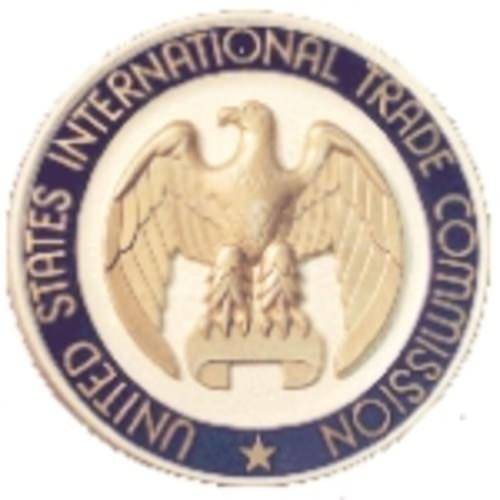There is already a well-functioning administrative body for handling intellectual property disputes between U.S.-based companies and parties in foreign countries. It’s the U.S. International Trade Commission (USITC), and if you’ve followed the many disputes brought by Apple against mobile phone makers, by mobile phone makers against Apple, and among IP portfolio holders such as Qualcomm and Broadcom, no doubt you’ve heard of USITC.

So why didn’t Congress consider the Commission as a solution for the burning problem of resolving piracy matters with unknown parties outside U.S. borders? That’s a question being asked, and possibly even answered, by an alternative bill introduced last week to the Stop Online Piracy Act (SOPA) and PROTECT-IP bills in the House and Senate, respectively. This morning, a cavalcade of leading tech companies known to oppose SOPA already have signed on as supporters of the USITC-based alternative.
Open to OPEN
Sen. Ron Wyden (D – Ore.) and Rep. Darrell Issa (R – Calif.) are promoting alternative legislation that delegates the USITC as the jurisdiction for international online IP piracy matters. That court has the authority to ban the import and sale of infringing material to U.S. customers, though it appears the court would not have the authority that would be granted to courts under SOPA to order ISPs to block access to Internet DNS addresses.
The Wyden-Issa approach, which also goes by the name “Online Protection and Enforcement of Digital Trade Act” (which folks accept under the acronym “OPEN”), was praised by a coalition comprised of AOL, eBay, Facebook, Google, LinkedIn, Mozilla, Twitter, Yahoo, and Zynga. “This approach targets foreign rogue sites without inflicting collateral damage on legitimate, law-abiding U.S. Internet companies by bringing well-established international trade remedies to bear on this problem,” the coalition wrote today in a joint letter to Issa and Wyden.
The one principal flaw some see in the Wyden-Issa approach, as their bill is currently written (it has yet to go through markup), is that it does not yet give USITC an effective means to enforce decisions against parties found to be trafficking in illicit or counterfeit intellectual property online. While it can’t shut off the DNS valve for accessing the Web site, the current bill would literally have the court try to reach the absent party by mail (the kind that uses stamps). If it doesn’t get a response, the court is then authorized to implement “any other such form as the Commission finds necessary,” whatever that may be.
Would USITC have any authority?
Since the Commission is technically not a court, all it can effectively do is grant the authority to agencies and departments to do what’s necessary to protect the rights of complainants. “What’s necessary” has changed over the years, though today it typically grants the Dept. of Commerce (not the Dept. of Justice) the authority to impose tariffs against the import of certain goods or products, as well as to enforce bans in imports of certain products. Not being a court, the USITC cannot order an ISP to alter its services.
Can the Dept. of Commerce issue such an order? Essentially, DoC is the final caretaker of U.S. copyright law, and is perceived as the enforcer of valid DMCA takedown provisions. But as long as it takes the USITC now to reach a decision in copyright and patent infringement cases, it could theoretically take years after a case is brought before the Commission, before it can issue the authority that DoC or any other agency would require to take action.
GOP vs. GOP
That’s a critical flaw in the Wyden-Issa bill that will no doubt be pointed out by one of Rep. Issa’s GOP rivals in the House, Rep. Lamar Smith, who heads the House Judiciary Committee on which Issa serves, and who is SOPA’s principal sponsor. The Washington Post‘s Cecilia Kang reports this morning that Smith’s bill may go further significant changes, in a markup hearing for SOPA scheduled for Thursday. On the table is at least one manager’s amendment, says Kang, that may water down or strip entirely SOPA’s provision for ordering ISPs to block IP address resolution.
That may leave SOPA as equally naked and unprotected as the OPEN bill, which could potentially doom both. In a blog post last week on the subject, Harvard Law Prof. Jonathan Zittrain suggested that the merits of both bills could be better weighed if Congress would use some of its otherwise wasted time to investigate actual instances of piracy, even if just to determine if there would simply be too many defendants for USITC or an actual court to manage.
“The question Congress ideally would take up before passing anything is an empirical one,” Prof. Zittrain writes, “because overseas copyright infringement is a classic example of a public policy issue that hungers for real data. We’d do well to have less unanchored rhetoric around this topic and more information about just what kinds of sites proponents want to target and what evidence they can produce to show the harm these sites are causing. Then Congress could evaluate how risky or costly legislative action against those sorts of sites would prove. This is an earnest plea – we really could benefit from good data here. Without it, any compromise may be simply pitted against a caricatured initial proposal – when both are ill-considered. Bottom line: The Wyden compromise is significantly better than the original SOPA proposal, and it might form the basis for a new law against egregious overseas ‘kingpin’ infringement. A narrowly tailored proposal fleshing out the compromise would test how much the publishers seeking the law mean to go after only the big fish. And developing some real data on the scope of the problem and the impact of solutions is both desirable and doable.”










